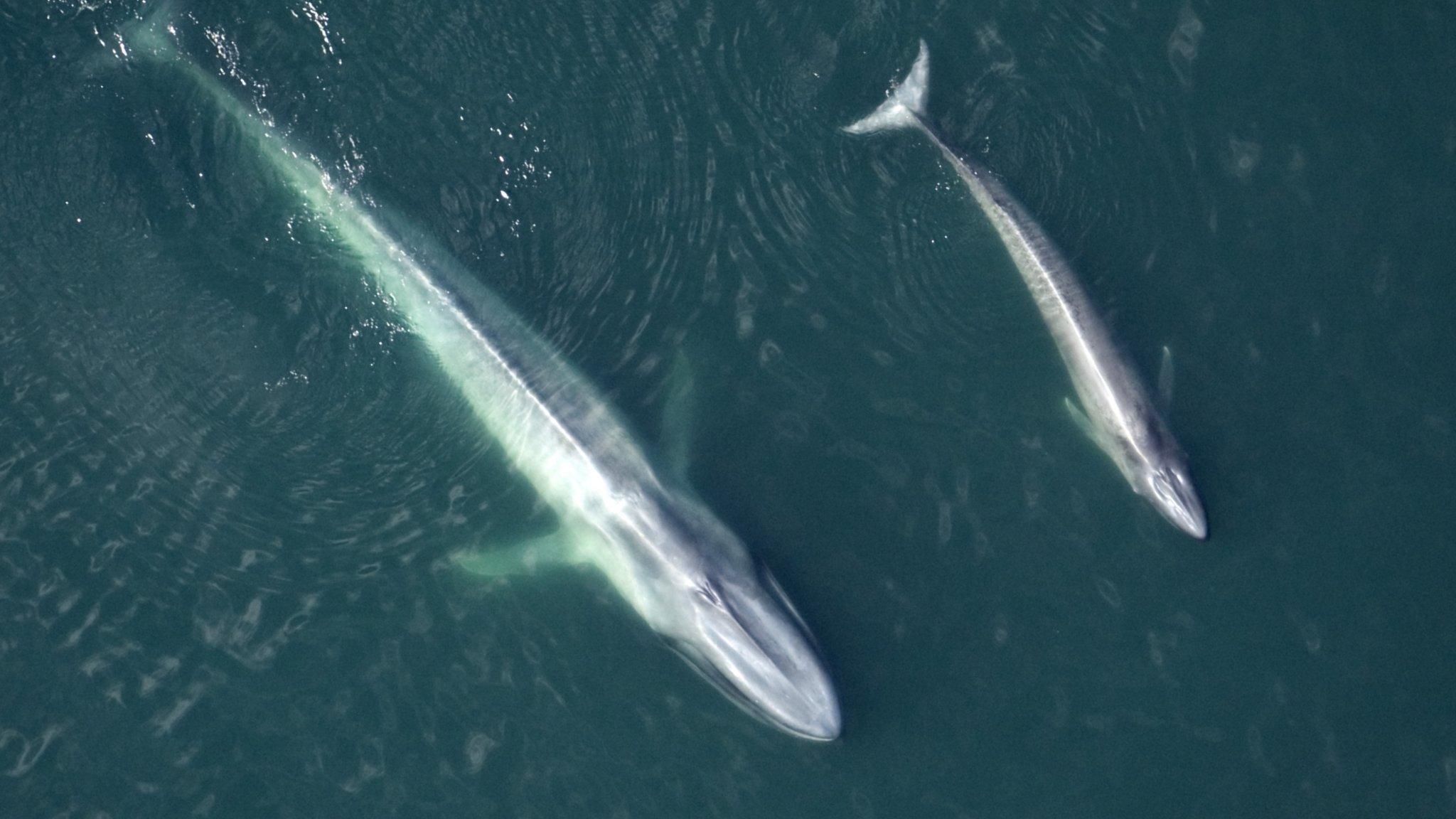Beached whales: Rescuers in Tasmania are working to save beached pilot whales
- Published
- comments
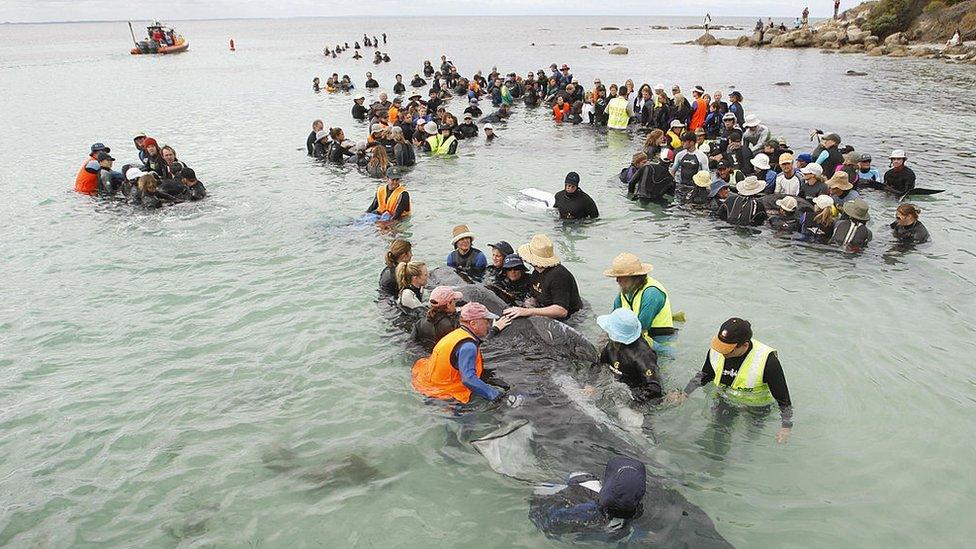
Whales are being herded back to see or being moved by crane
Rescuers are working quickly to help save as many pilot whales as possible after a mass beaching on a shore in Tasmania, an Australian island.
Since Monday, an estimated 470 of the sea creatures have been discovered stranded on the west coast of Tasmania.
Teams of experts are working hard to save any animals trapped in in shallow waters, but many have sadly died.
Tasmania has recorded this as it's largest-ever stranding of whales and a government marine conservation team is assessing the health of the whales
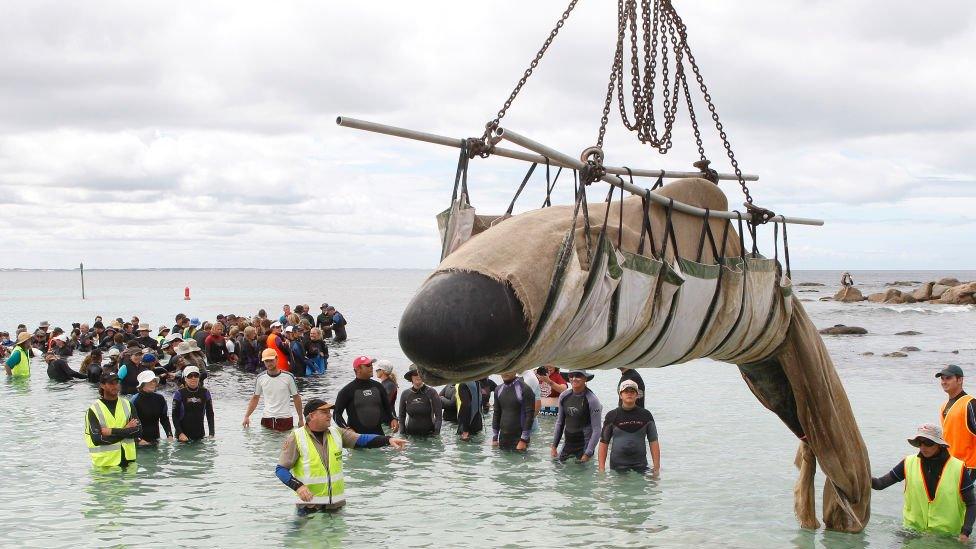
This rescued whale is being lifted by crane to deeper waters so it can escape back to sea
More than 80% of Australian whale strandings take place in Tasmania which is a known whale stranding hotspot as the mammals pass it to and from Antarctica.
Since Monday rescuers have been fighting to save a pod of 270 whales.
Watch: Why do whales get beached?
Nic Deka, incident controller from Tasmania Parks and Wildlife Service
Then on Tuesday a helicopter discovered another 200 whales about 10km away in the same harbour.
Pilot whales are actually large dolphins
They are very social and have strong bonds. They like to do everything together
They like to eat squids and octopus
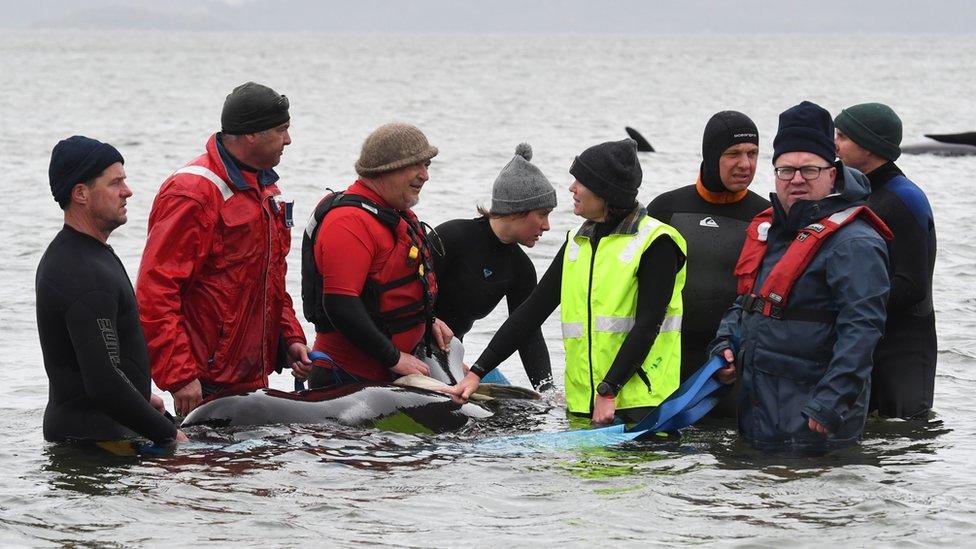
Volunteers are helping to save the beached whales
Although 25 whales from the first group were freed on Tuesday, some had beached themselves again after being brought in by the tide, according to officials.
Rescuers don't know exactly what drew the whales to the shore, but scientists say pilot whales in particular have very strong bonds.
Pilot whales are the most common to become beached. They can grow up to seven metres long and weigh up to three tonnes.
- Published23 March 2018
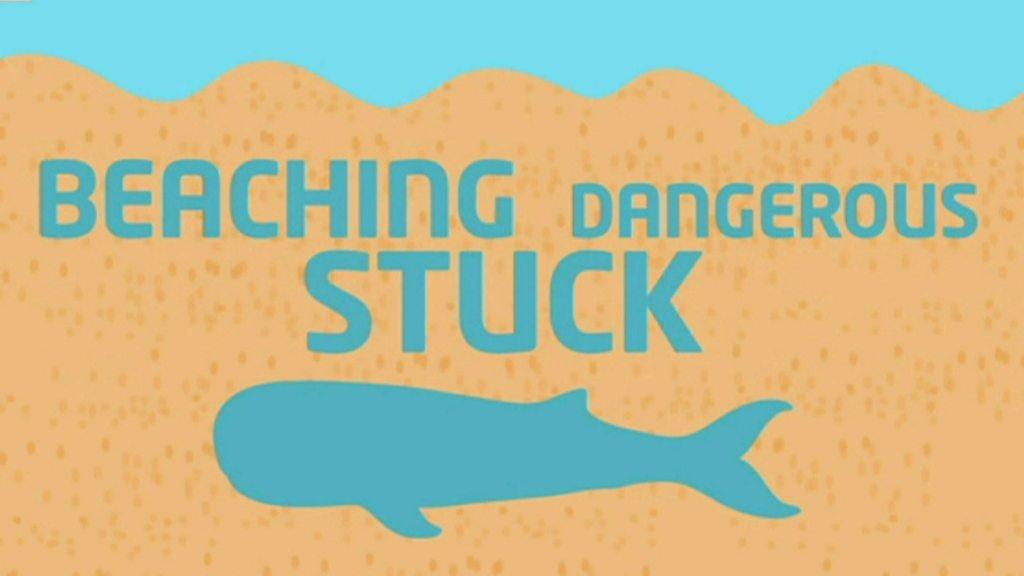
- Published20 February 2020
